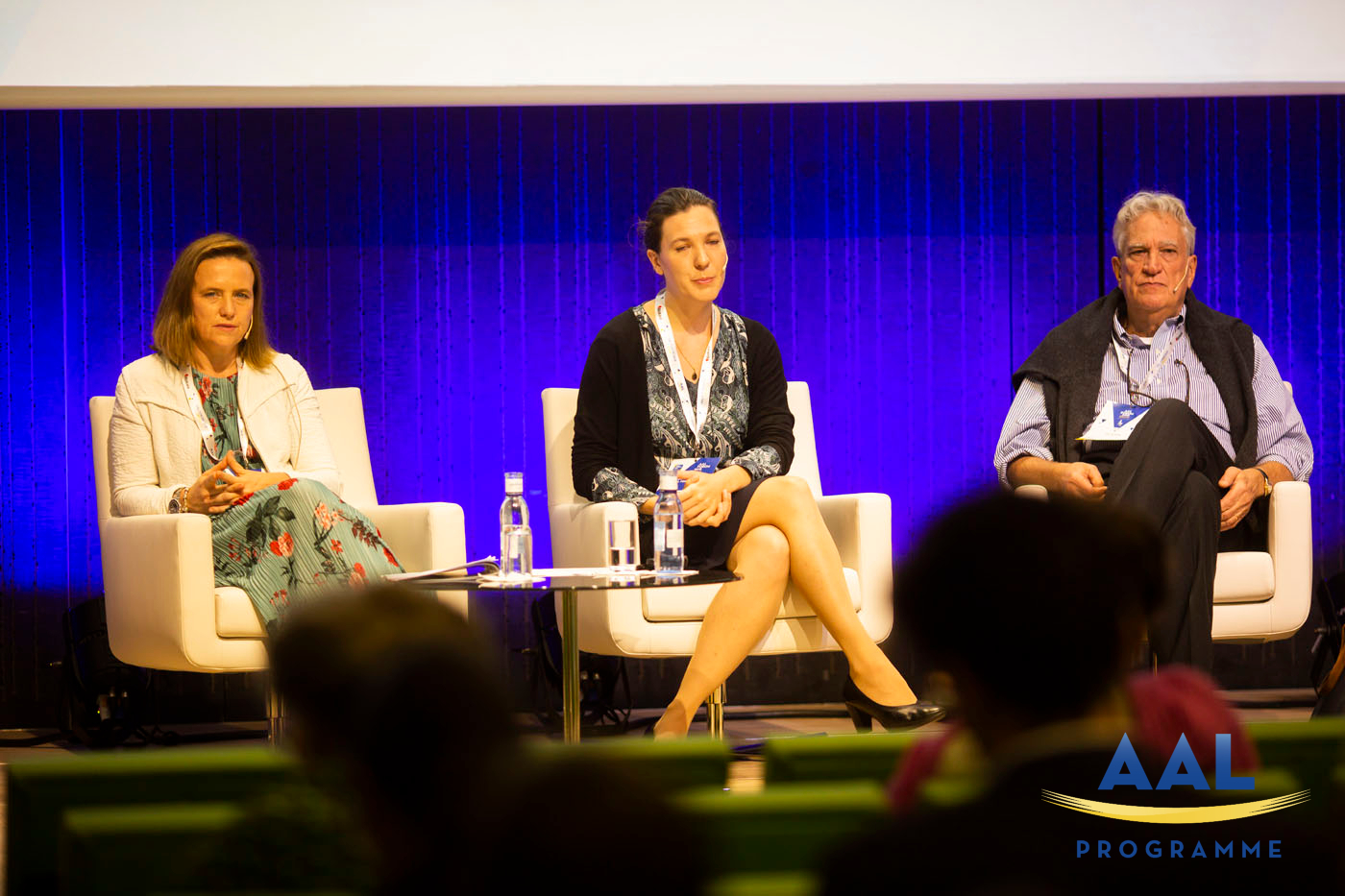Working together to transform health and wellbeing
Cristina Bescos, is the European programme manager at Philips Population Health Management/Telehealth. She attended the forum 2018 to speak at the plenary debate about the growing community of changemakers, providing the dialogue with an industry perspective on how AAL fits into the whole sector of health and wellbeing across the board. Before joining the debate, we caught up with her to find out more
AAL: What motivated you to attend the AAL Forum this year?
CB: I came to the Forum on behalf of Philips Healthcare to talk about the industry perspective in relation to innovations in the area of AAL, as well as in the broader sense of innovations relating to the health of the population as a whole, so anything that deals with people, elderly people, people at home, chronic illness management and so on. We see all these challenges merging together and so we should not just be focussing on them individually, like managing chronic illness or dealing with fragility, but we should be looking to provide solutions to the population whatever their need.
AAL: And what is Philips position. What is Philips working on within this area?
CB: We are working in many different areas, normally providing solutions that really look at the needs of the population and then developing different products and services mainly in combination with other providers. So, we develop solutions for medication management, for supporting independent living at home, for the prevention and detection of falls, while at the same time, combining all that with more clinical, medical services.
AAL: How do you propose a company like Philips will work with AAL? How do you tie it all in?
CB: For us, AAL is just one part of the solution, it’s not the solution alone. We are really looking at healthcare and wellbeing as a whole and AAL is a component of that. AAL’s work in looking at seniors is a crucial part of it, because we are all going to be seniors and we also know about the demographic change and the explosion of chronic diseases at that age. So, we are looking at it as a segment that is a really important part of our innovation programme and also about our policy about healthcare and wellbeing. So, what we say is, health has no barriers.
AAL: What does an event like the AAL Forum teach us in this respect?
CB: There are always very innovative products at the AAL Forum and it is useful to see these and to talk to all those working in this field. For me, the most exciting thing is this combination of profiles that exists here – you can see people from research, from education, from the implementation side, from the providers and from technology – and you can learn a huge amount from this mixture of conversation. That is the best thing here.
AAL: What do you think the projects and the people at the AAL Forum learn from an enormous organisation like Philips?
CB: Philips is an innovation company that started more than 120 years ago by developing lightbulbs. We are now completely dedicated to being a health and well-being company, and so what we have learnt is that in order to survive you need to transform, while, more and more, you also need to co-operate with others. We have a different way of doing innovation and I think that’s the same for those here and those involved in the AAL space. The whole concept of developing innovation on your own or it being done by the developers or new innovators on their own, all that is not valid any more. So, I think the transformation we are having in the big companies, it is this that we can happening to AAL and those at the forum who work in this space.
AAL: Are you optimistic about the future in terms of active ageing in Europe and as our own population grows older, optimistic that we can do something about it so we all live better lives?
CB: I think Europe really is the leader in what is the social and wellness system of the world. Because of that I really believe that we can also be the leaders in terms of digitalising that. I think we have a lot to learn but a lot to show the rest of the world, too, and I’m very optimistic that we can definitely do it in Europe but also with co-operation with others globally.

